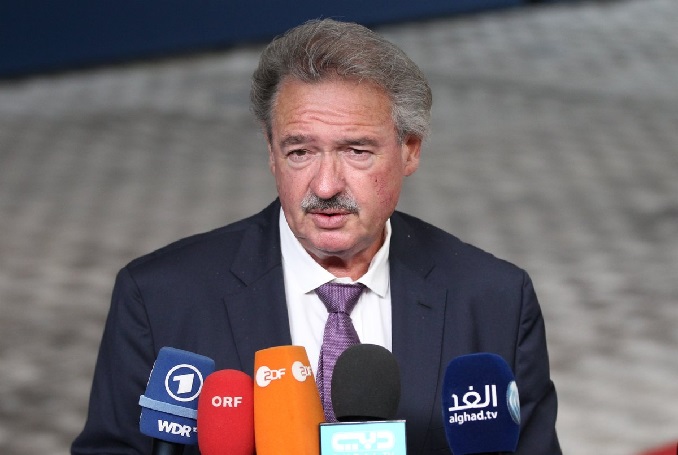
By Ramona Wadi
During the Berlin European Council summit in 1999, the European Union declared “its readiness to consider the recognition of a Palestinian state in due course” and conditionally dependent upon the Oslo framework, as well as “Israel’s security and Israel’s acceptance as an equal partner in the region.” Two decades later, the EU is still being prompted to recognize a Palestinian state.
The latest recommendation came from Luxembourg’s Foreign Minister, Jean Asselborn, as a reaction to the US reversing its official position over the legality of Israeli settlements. However, Asselborn himself emphasized the limitations of such a move, describing it as “a mere recognition of the right of the Palestinian people to [their] own state.” Speaking to Reuters, Asselborn insisted that any such recognition “would not be meant against Israel,” but rather a step towards implementing the two-state paradigm.
In other words, such recognition would merely affirm the EU’s consistency with its foreign policy. By no means is EU recognition of a Palestinian state meant to advance Palestinian liberation. Furthermore, the constant political reactions to the US and Israel advancing colonial expansion in Palestine is rendering any possible significance of recognition negligible.
The European Council on Foreign Relations (ECFR) highlighted reasons why the European Parliament should vote in favor of a Palestinian state, mentioning, among other things, the “significant EU financial investment in the two-state solution”. Of particular significance is how the ECFR ties recognition of a Palestinian state to Israel’s purported legitimacy as evidenced by its statement that, “Recognising a Palestinian state based on the 1967 borders reaffirms the EU’s support for the two-state solution and the legitimacy of Israel.”
Furthermore, the ECFR opined that such recognition would “likely have a restraining influence” on Palestinians resorting to armed resistance. The Council maintained that in the event of “no progress with Israel, at least all is not lost in the world and that their [the Palestinian] leadership can deliver a diplomatic success.”
What the ECFR fails to mention is that diplomatic successes for Palestinians, conditioned as they are by powerful institutions aligned with Israeli demands, are responses as opposed to claims for rights. The fact that the Palestinian Authority is at the helm, endorsing this labyrinth of half-truths that protects Israel at all costs, creates bleak prospects for the people of Palestine.
It is one thing to advocate for the two-state paradigm, and another to impart what the PA is groveling for at an international level, namely prioritizing Israel’s presence and security narrative at the expense of Palestinian land and people, which is what the two-state compromise is all about, as the ECFR spells out.
Even if it were to issue such recognition, the EU will not step away from its commitment to maintaining Palestinians as a humanitarian project. State recognition without its equivalence in terms of land, sovereignty and liberated people is as deceptive as the state-building which the EU funds the PA for, in return for its complete acquiescence to the two-state paradigm which keeps Palestinians stateless. Without changing its politics, EU rhetoric and drawn-out symbolic concessions will only serve to highlight the fact that a Palestinian state without Palestinian liberation is an illusion.
– Ramona Wadi is a staff writer for Middle East Monitor, where this article was originally published. She contributed this article to the Palestine Chronicle.







